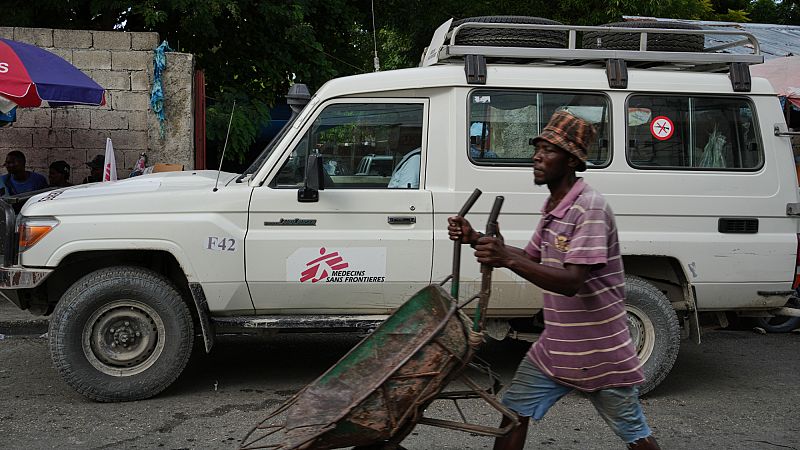Doctors Without Borders closes emergency centre in Haitian capital

International medical charity, Doctors without Borders (MSF), said on Wednesday that it was indefinitely closing its emergency clinic in the Haitian capital, Port-au-Prince.
It said this “last resort” decision was as a result of the extended violent clashes that have threatened the safety of its staff and patients.
The centre in the Turgeau neighbourhood temporarily closed in March after armed men opened fire on four of MSF's vehicles that were evacuating staff from the facility.
More than half of Port-au-Prince’s health facilities, including its general hospital, are now closed or non-functioning because of the surge in insecurity.
The MSF centre had remained a key lifeline for people in the city which is now 90 per cent controlled by criminal gangs.
This has limited the delivery of supplies, provision of services, and safe travel for the three million people who live in the capital's metropolitan area.
MSF's Head of Mission in Haiti, Jean-Marc Biquet, said the closure of the centre will have a very negative impact for people.
“That part of the city, so close to the city centre, there are no medical facilities available or affordable for the Haitian population. That is why you have so many IDPs [internally displaced people] living in sites in such bad conditions.”
Biquet said the Turgeau clinic was located very close to the frontline and so it was constantly hit by stray bullets.
“We tried to find possible protection for the building to make sure the patients and the staff were not at risk, but all the possibilities we found are impossible to implement,” he said.
Haiti has been plagued by worsening gang violence since the 2021 assassination of its then-President Jovenel Moïse.
From January to June, more than 3,100 people were reported killed across Haiti and an additional 1,100 reported injured, according to the United Nations.
The UN International Organization for Migration earlier this week said the ongoing gang violence has displaced a record 1.4 million people across the country, a 36 per cent increase since the end of 2024.
Observers says the arrival last June of a Kenya-led UN-backed multinational security force has had little impact so far on ending the violence.
Today

